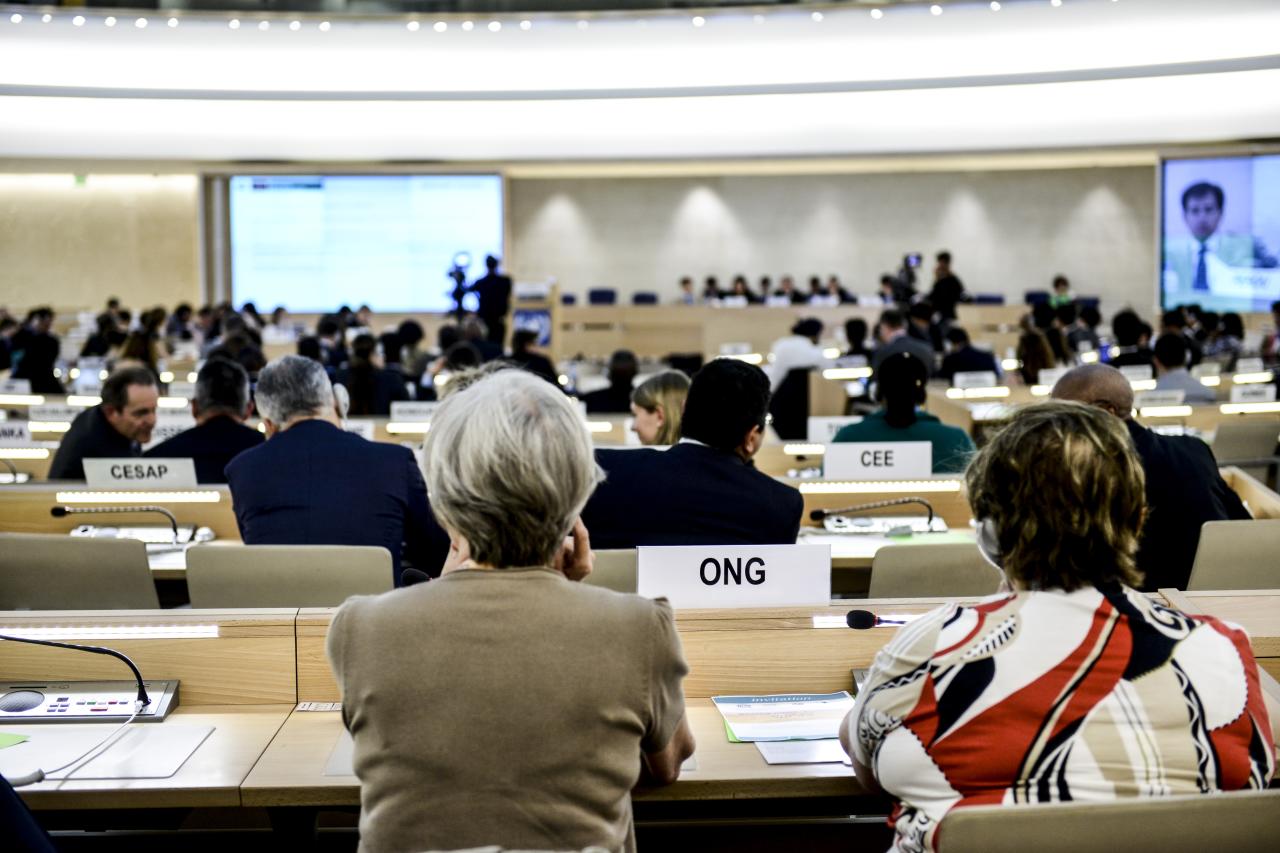
HRC38 | Civil society participation is in the service of an effective UN
Civil society bolsters multilateralism through demands for an effective UN. This has been a key message of the Human Rights Council session so far, voiced by the High Commissioner, States and civil society advocates.
During each of its three sessions per year, the Human Rights Council holds a general debate on the promotion and protection of human rights. This session, States and civil society speakers addressed a range of country and thematic focused concerns. Promoting civil society participation was one of these.
Deputy High Commissioner for Human Rights, Kate Gilmore noted how civil society engagement in regional and international organisations ‘strengthens international policy functioning’. Civil society’s connection with grassroots concerns give them credibility to participate, she noted, as well as strengthening transparency in decision-making.
Delivering a statement in name of ISHR, Salma El Hosseiny noted that, ‘civil society engagement is essential to ensuring an effective UN. Civil society brings human rights analysis to the system and pushes for that system to be fit for the purpose of protecting rights.’
In terms of analysis, civil society alert States to human rights situations that need addressing in multilateral spaces. The Society for Threatened Peoples (STP) spoke out about the situation for Uighur peoples. This despite the recent veiled threat made against them during the Committee on NGOs session by the Chinese delegation.
Unfounded accusations against #HRDs made in UN bodies – inexcusable https://t.co/I5MoTtIGgi
— eleanor openshaw (@eleanoropenshaw) June 6, 2018
In regard to pushing for a more effective system, ISHR pointed out the need for States to cooperate with the UN’s own mechanisms.
The session’s joint communications report produced by Special Procedures – individuals and working groups – shows that among the 56 States listed as having yet to respond to at least one initial communication alleging rights violations, 14 are Council members. Four of these are repeat offenders, having ignored three of more requests for information: the Democratic Republic of Congo, Egypt, Kenya and the Philippines.
‘This lack of cooperation undermines the integrity of the Council and is incompatible with membership,’ said Helen Nolan of ISHR. ‘We call on the President of the Council to urge all States that have failed to respond so far to urgently provide updates.’
Protection of those who engage with the UN is a key and ongoing concern. However, only Ireland and Argentina made references to civil attacks against civil society in their interventions during the debate. Argentina focused on the impact of these on ‘democratic dialogue’, whilst Ireland noted the diverse civil society participation in the UN must be safeguarded.
‘More States need to be making regular, categorical public statements about the value of civil society participation and the responsibility to protect civil society representatives in that engagement’, noted El Hosseiny.
Watch the statement here:
Read the full statement here.
Contacts: Salma El Hosseiny: [email protected] Helen Nolan: [email protected]
Photo: UN Photo/Anne-Laure Lechat
